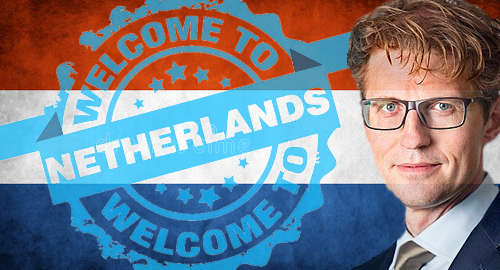 A Dutch cabinet member has poured cold water on plans to prohibit naughty international online gambling operators from applying for Dutch online licenses.
A Dutch cabinet member has poured cold water on plans to prohibit naughty international online gambling operators from applying for Dutch online licenses.
On July 13, Sander Dekker, the Netherlands’ Minister for Justice and Security, issued a formal response to the Dutch Senate’s second round of questions regarding the country’s Remote Gaming Bill. The bill, which was approved by parliament’s lower house in 2016, recently resurfaced in the Senate after a long period of inaction.
Dekker’s reply notes that the primary objective of the Bill is the ‘channelization’ of Dutch punters from their current patronage of internationally licensed gambling sites to sites holding new Dutch licenses. Only with an acceptable level of channelization can the government achieve its wider aims of consumer protection, minimizing gambling addiction and combating gambling-related crime.
Dekker (pictured) further notes that some Dutch pols believe that, once the Kansspelautoriteit (KSA) gaming regulatory body issues its new licenses, Dutch punters will automatically switch to the approved operators. As such, these pols see no reason why international operators that have been previously sanctioned by the KSA should be eligible for a Dutch license.
Dekker suggests that this view is naïve, given the “reliable reputation” established by the main Dutch-facing international operators, whose alleged crimes weren’t viewed as criminal by Dutch punters who had no state-approved legal online options at the time.
Dekker maintains that international operators who are currently defying the government’s prohibition of online gambling would, if denied the opportunity to apply for a Dutch license, simply continue their unauthorized activity. Similarly, the government’s future efforts to prevent these operators from serving Dutch punters would prove as ineffective as the current prohibition.
In Dekker’s view, opening the Dutch market to as many potential online licensees as possible will serve to diminish the appeal of grey/black market operators, thereby allowing the government to focus its enforcement efforts on a much smaller volume of unauthorized sites.
Dekker notes that efforts to restrict the number of available online betting licenses in Germany resulted in a legal quagmire that ultimately rendered the government virtually incapable of policing its online gambling market, a situation that Dekker doesn’t want to see replicated in the Netherlands.





